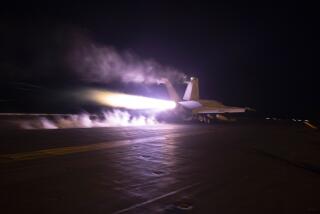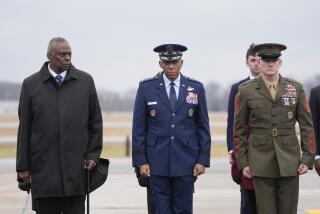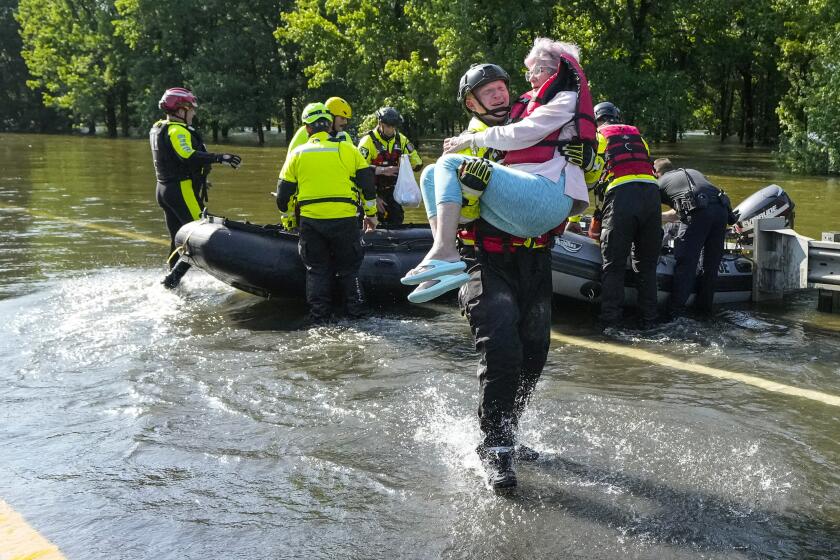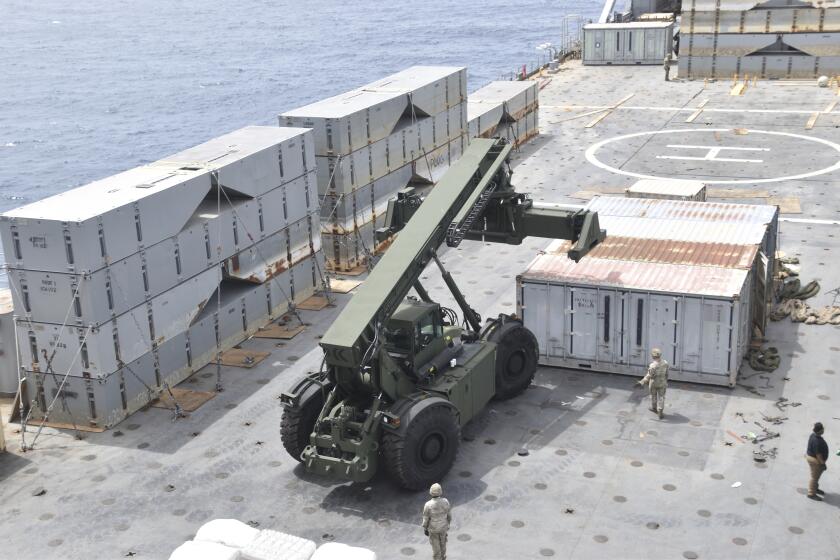U.S. says airstrike against Shabab extremists in Somalia kills about 60 fighters
The U.S. military on Tuesday announced its deadliest airstrike against the Al Qaeda-linked Shabab extremist group in Somalia in nearly a year, killing about 60 fighters.
The U.S. Africa Command said Friday’s airstrike occurred near the Shabab-controlled community of Harardhere in the central province of Mudug. No civilians were injured or killed, it said in a statement.
It was the largest U.S. airstrike since one on Nov. 21 killed about 100 Shabab fighters. The statement gave no further details about what was targeted, and a U.S. Africa Command spokesman said it was not a camp.
The U.S. military has carried out more than two dozen airstrikes, including drone strikes, this year against the Shabab, the deadliest Islamic extremist group in sub-Saharan Africa.
Somalia on Sunday marked the first anniversary of the Shabab’s deadliest attack, a truck bombing in Mogadishu, the capital, that killed more than 500 people. It was one of the world’s deadliest attacks since Sept. 11 and the worst extremist attack ever in Africa.
The U.S. Africa Command spokesman said the airstrike had no link to the anniversary.
The United States, which also has targeted a small number of fighters linked to the Islamic State group in northern Somalia, has increased its military presence in the long-chaotic Horn of Africa nation since early 2017 to about 500 troops after President Trump approved expanded operations.
The Shabab, which seeks to establish an Islamic state in Somalia, continues to hold parts of the country’s southern and central regions after being chased out of Mogadishu several years ago. The group, estimated at several thousand fighters, still carries out deadly attacks against high-profile targets such as hotels and checkpoints in the capital and other cities. It also remains a threat in parts of neighboring Kenya.
Although some observers have questioned the effectiveness of airstrikes by the U.S. and Kenya and raised concerns about civilians being killed, the U.S. military maintains that they reduce the group’s “ability to plot future attacks” and “disrupt its leadership networks and degrade its freedom of maneuver within the region.”
Somali forces in the next few years are expected to take over responsibility for the country’s security from an African Union peacekeeping force, which already has started withdrawing hundreds of personnel.
The U.S. says it continues to support that transfer even as some American military officials have joined African Union officials and others in expressing concern that Somalia’s forces are not yet ready.
More to Read
Start your day right
Sign up for Essential California for news, features and recommendations from the L.A. Times and beyond in your inbox six days a week.
You may occasionally receive promotional content from the Los Angeles Times.






